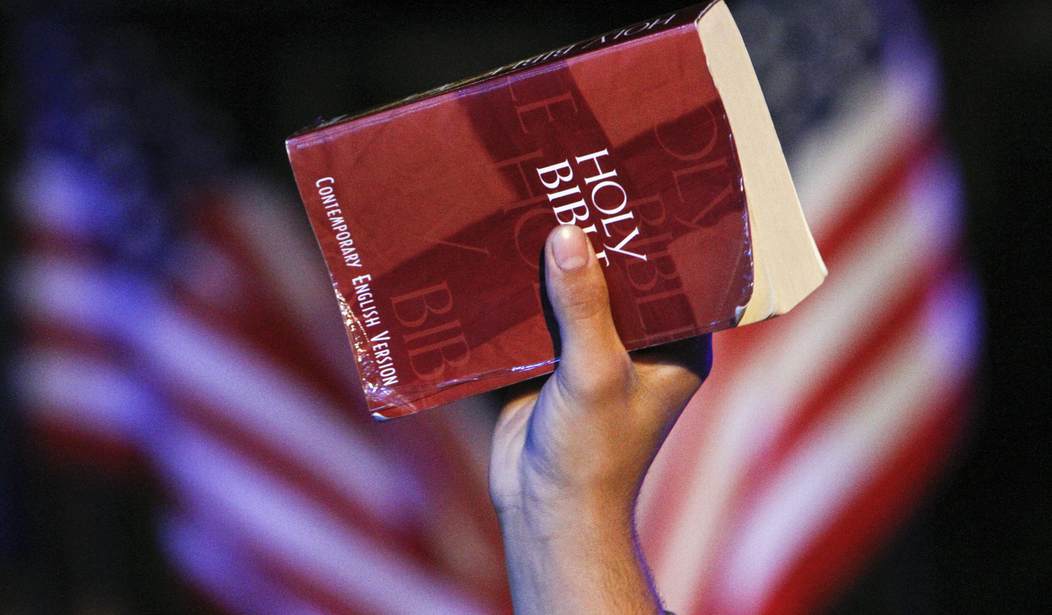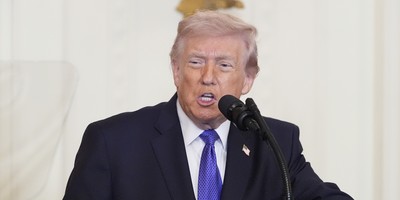Aside from the parades, flags and cookouts associated with Independence Day, some commentators (myself included) like to examine the philosophical and religious underpinnings of the American founding. Was it based on Christianity or something else?
The Center for American Progress (CAP), a self-described progressive think tank, calls it foolish and wrong to believe, “that our country’s roots are explicitly Christian.” CAP argues that this opinion, “devalues the Christian faith and disrespects the genius of the founding fathers.”
CAP goes on to claim, “If the founding fathers intended to include Jesus, the Bible, or other particular aspects of the Christian faith in the founding of our nation, they would have expressly done so.” Note the use of the words “explicitly” and “expressly.” They’re vehicles by which CAP argues against the religious nuances of our founding documents.
It’s difficult to pin down all the beliefs of all of the Founders, and it’s reasonable to conclude that a variety of philosophies were relied upon when declaring independence. But when we examine the less secular pronouncements of the Declaration, we find clues.
The first sentence of the Declaration includes an appeal for the people of the nation, “to assume among the Powers of the Earth, the separate and equal Station to which the Laws of Nature and of Nature’s God entitle them.” This acknowledgement of God in the opening line of such a momentous document was explicit and deliberate.
The concept of natural law dates to ancient Greece and Rome, as well as other cultures across history. But it was Reformed Christianity, aided by the perfection of moveable type in Europe, that propelled this concept into civic life. Legendary Reformers including Martin Luther, Philip Melanchthon, John Calvin and others vociferously promoted natural law.
Recommended
In The Theology of Huldrych Zwingli, author W. Peter Stephens writes of the 16th century Swiss Reformer, “Zwingli understands ‘the law of nature’—that which is ‘implanted by God on the heart of man and confirmed by the grace of God through Christ’—to be the basis for all human laws.” The idea of laws written on the heart comes straight out of the Bible, both Old and New Testaments.
Perhaps the best known line of the Declaration comes in the second sentence, which proclaims, “all Men are created equal, that they are endowed by their Creator with certain unalienable Rights.” The Founders could have taken this idea from Islam, which recognizes the Creator, and a right to life and liberty, but only “within the limits set by the Law.”
The American Declaration includes no such limitations on rights from God. It is emphatic and reflects New Testament scripture in which Luke records in the Book of Acts, “We must obey God rather than man,” a first century acknowledgement of the supremacy of the law of God.
As the Declaration prepares to enumerate the “repeated injuries and Usurpations,” of King George III, it affirms for citizens of the colonies that, “it is their Right, it is their Duty, to throw off such Government.” This principle can be traced to John Knox, the 16th century Scottish Reformer who wrote, “Resistance to tyranny is obedience to God.” Thomas Jefferson used this as the motto for his personal seal.
After listing their many complaints with King George, the Founders stated that they were “appealing to the Supreme Judge of the World,” for what they were about to do. Islam recognizes a Supreme Judge as well, but it is man who serves in that role.
The concept of God as the Supreme Judge also springs from Reformed Christianity, beginning with 14th century philosopher and theologian John Wycliffe. His position was shared and proclaimed by Jan Huss, the Bohemian Reformer who was burned at the stake for his beliefs a century before Luther’s 95 Theses was written.
In the final sentence of the Declaration, the signers pledge to each other their lives, fortunes and sacred honor with “a firm Reliance on the Protection of divine Providence.” They placed their faith in God and it was ultimately not misplaced. Islam also recognizes divine providence but I’m not convinced the Founders would shift the focus of their philosophies from Knox, Huss and Luther to Mohammed.
People can debate whether Christianity was central to the American founding. But in examining the overt and implied religious principles of the Declaration, a question arises: Which faith other than Christianity do these principles reflect? Bits and pieces of these principles are sprinkled across time but only one faith holistically encompasses all of them and that is Christianity.
This is not to say our founding was “explicitly Christian.” The explicit connection to Christianity was left to future presidents from both political parties, as well as Congress and jurists. Semantics aside, the roots of our founding were firmly anchored in Christianity. Only Christianity reflects the totality of the vision of the Founders. That was their true genius.

























Join the conversation as a VIP Member